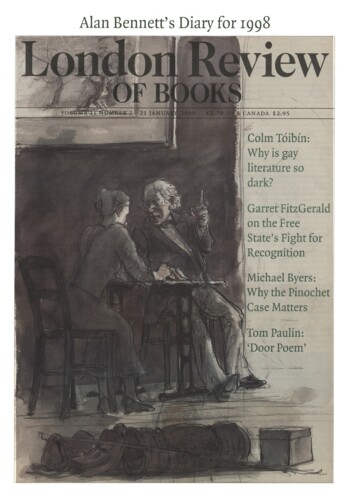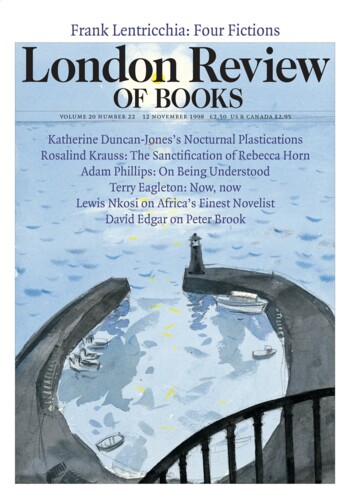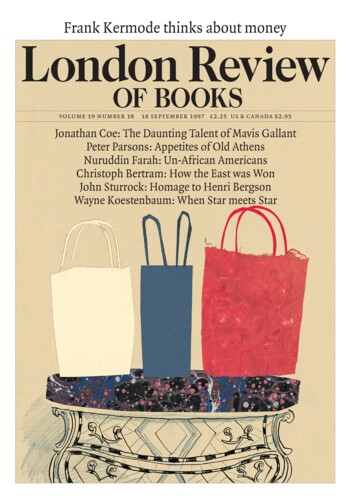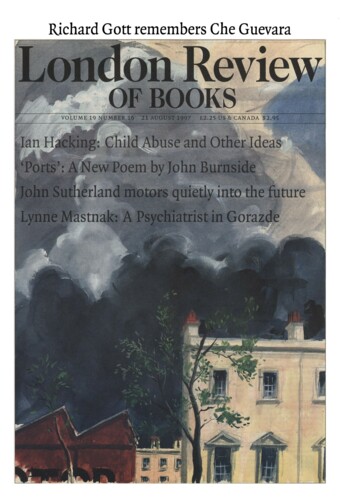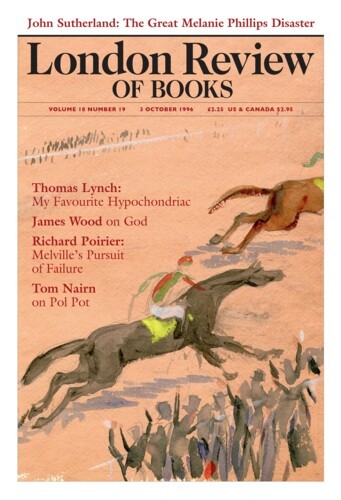Flickering Star: Iain Crichton Smith
Robert Crawford, 21 January 1999
Smile at that tiny poem and it will sparkle back at you. It is a novel the size of an egg-cup. The first in a sequence of individually numbered ‘Gaelic Stories’, its strength lies in mischievous enjambments. Others that follow confine in very few words life-dramas that have a humorous patina, yet could tilt toward the tragic:‘
